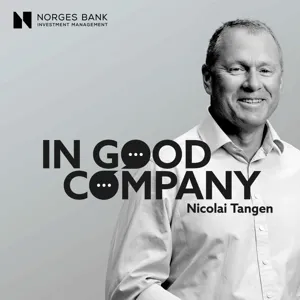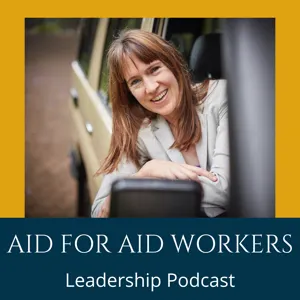Podcast Summary
Siemens: Transforming Everyday Life with Technology: Siemens, a 175-year-old tech giant, continues to innovate and transform industries through digitalization, software, and AI, improving efficiency, predicting maintenance, and enhancing decision-making with digital twins.
Siemens, the world's largest technology company with a market value of 250 billion euros, transforms everyday life by automating various industries, including manufacturing, transportation, and energy. Founded in 1847, Siemens has a rich history of transformation, having previously produced gas turbines, communication technology, and household equipment. Currently, the company is undergoing its fastest transformation yet, driven by digitalization, software, and AI. Siemens' technology can be found in numerous aspects of modern life, such as cars, buildings, and electrical grids. For instance, 30% of all automation systems and roughly 50% of the world's electrons flow through Siemens technology. The company's constant transformation and adaptation to new technologies have contributed to its longevity and success. One such innovation is the digital twin, a virtual representation of a physical object or system, which allows for improved efficiency, predictive maintenance, and better decision-making.
Combining physical and digital worlds for efficient manufacturing: Digitalization and AI enable designing, optimizing, and monitoring industrial processes in real-time, saving time, reducing waste, and improving quality.
Combining the physical and digital worlds is a powerful strategy for increasing productivity, saving resources, and optimizing processes. By simulating and testing in the digital realm before implementing in the physical world, companies can save time, reduce waste, and improve quality. This approach, known as digitalization or building a "digital twin," is already being used in industries like automotive and manufacturing to design and build more efficiently. Artificial intelligence (AI) will further enhance this strategy by enabling real-time optimization and decision-making based on data from the digital twin. For example, a factory can be designed and optimized digitally before being built in the real world, saving time and resources. Once the physical factory is up and running, AI can be used to continuously monitor and optimize processes, leading to higher productivity and flexibility. The ultimate goal is to create an industrial metaverse, where the physical and digital worlds are seamlessly interconnected in real-time, allowing for even more efficient and effective manufacturing.
The Future of Technology: Digital Twins, Physics-Based Simulations, Smart Infrastructure, and Data Optimization: Digital twins offer real-time insights into systems, smart infrastructure goes beyond automation to digitalize services, more data leads to a more valuable digital world, and Norway's green energy and educated workforce make it an ideal location for high-tech manufacturing
The future of technology lies in the intersection of digital twins, physics-based simulations, smart infrastructure, and data optimization. Digital twins are photorealistic and physics-based models that provide real-time insights into systems, allowing for precision and optimization. Smart infrastructure, such as smart cities, goes beyond automating infrastructure to include digitalization of services like healthcare and transportation. The more data collected, the more valuable the digital world becomes, enabling advanced algorithms and optimization. Norway, with its abundant green energy and educated workforce, is an ideal location for high-tech manufacturing, such as battery production. Ultimately, the future will be shaped by the integration of these technologies, allowing for more efficient, safe, and convenient systems.
Optimizing battery production: People, Yields, and Government Support: To remain competitive in the battery industry, Germany must improve yields to 90%, invest in infrastructure, prioritize education and training, and provide targeted subsidies for new technologies.
The success of battery production relies heavily on the people running it and their ability to optimize complex processes, maintain high yields, and manage costs effectively. The speaker emphasized the importance of improving yields to 90% to be competitive in the industry. Additionally, they mentioned the role of governments in supporting businesses through infrastructure investments, education and training, and targeted subsidies for new technologies. Germany, being an aging society with high energy costs and taxation, needs to address these issues to remain competitive and attract top talent. The speaker suggested three areas for improvement: investing in infrastructure, prioritizing education and training, and providing targeted subsidies for new technologies. They also acknowledged that there is no distinct "German culture" when discussing business matters.
German economy's success in vertical markets and need to adapt to digital age: German economy thrives in vertical markets but needs to balance traditional engineering with digital technologies, embracing innovation and attracting talent to adapt and transform.
The strength of the German economy lies in its highly competitive ecosystem of large, medium, and small companies, particularly in vertical markets like automotive. This success is rooted in the innovative mindset and quality focus of its people, from engineers to blue-collar workers. However, the challenge for German companies is to adapt to the digital age and combine traditional engineering with new software technologies. This requires a cultural shift to embrace innovation and attract talent with expertise in both areas. The incumbent syndrome or innovator's dilemma makes this transition difficult, as companies must maintain their existing businesses while investing in new technologies. Ultimately, the key to success is to balance the perfectionist mindset with the ability to adapt and transform.
Promoting Talent with a Growth Mindset: Companies like Siemens promote talented individuals beyond traditional career paths to develop future leaders faster, but it requires balancing steady progress with risk-taking and strong leadership.
Organizations like Siemens prioritize promoting talented individuals with a growth mindset beyond the traditional linear career progression. By identifying and promoting these individuals with a "double or triple step," companies can develop future leaders faster and stay competitive. However, this approach comes with challenges, such as potential backlash from colleagues and the need for strong leadership to trust and invest in these individuals. To effectively develop young leaders, organizations must balance the promotion of steady progress with the risk-taking required to unlock the full potential of their talent.
Effectively addressing issues and fostering open communication: Successful leadership requires courage to take on new challenges, effective communication, and the ability to calmly address issues. Stay informed and connected with your team and organization to lead complex situations.
Having the courage to take on new challenges and the ability to effectively communicate and address issues are crucial for successful leadership. The speaker shared his experience of being given the responsibility for a billion-dollar business despite having no operational experience. He worked tirelessly for three years to turn it around, but only succeeded because he fostered an open environment where people felt comfortable bringing problems to him. He emphasized the importance of staying calm and not overreacting when faced with issues. This approach allowed him to effectively address problems and ultimately lead the business to success. Additionally, he emphasized the importance of staying informed and connected with your team and organization, as leadership roles can involve managing large teams and complex situations.
Balancing external pressures and internal team needs: CEOs effectively manage by separating the important from the unimportant, empowering teams, and maintaining focus under stress.
Effective leadership involves balancing external market pressures with internal team needs, while maintaining a calm and focused approach. The CEO's experience in handling critical situations and simplifying complex problems through a theoretical physics lens enables him to separate the important from the unimportant and make informed decisions. Micromanagement is not preferred, instead, empowering and managing teams effectively is key. Stress is a part of leadership, but maintaining a cool demeanor and focusing on what's essential helps in dealing with it. The ability to simplify complex situations and prioritize is a valuable skill that can be honed through education and experience.
Empowering Employees vs Making Informed Decisions: Effective leaders strike a balance between empowering employees and making informed decisions, fostering accountability and appreciation while ensuring alignment with strategy.
Effective leadership involves striking a balance between empowering employees and making informed decisions. While exceptional circumstances may call for direct intervention, the normal approach should be to communicate strategy, ensure alignment, and delegate decision-making power. This not only speeds up the company but also fosters a culture of accountability and appreciation. As a leader, being genuinely interested in technology and engaging with experts sends a strong signal to employees and customers alike. However, gut feelings should not replace thorough analysis and research. Ultimately, informed judgment is key to making successful business decisions.
Combining Facts, Figures, and Intuition for Effective Business Decisions: CEOs gain unique perspectives but must research thoroughly, unclear info can lead to gut feelings, continuous learning is vital, read timeless literature for insights, intuition, knowledge, and experience collaborate for informed decisions.
Successful decision-making in business involves a combination of facts, figures, and intuition. The CEO of a big company gains a unique perspective from the world around them, but it's essential to do thorough research before making decisions. When faced with unclear information, gut feeling can come into play. The importance of continuous learning was emphasized, with the speaker sharing his recent deep dive into cell biology as an example. He advised reading timeless literature to gain valuable insights and knowledge. Ultimately, intuition, knowledge, and experience work together to make effective business decisions.
Understanding Sun Tzu's teachings for modern geopolitics: Stay informed and engaged in the world, apply strategic thinking, understand interconnectedness, and prioritize effective communication, collaboration, and flexibility to navigate complex global issues.
Key takeaway from this conversation with Horan is that we are living in significant times with critical developments unfolding around the world. Horan has provided valuable insights into these developments, drawing from Sun Tzu's teachings in his book on war. Sun Tzu's wisdom emphasizes the importance of adaptability, strategy, and understanding the enemy in times of conflict. Horan applies these principles to the current geopolitical landscape, highlighting the need for effective communication, collaboration, and flexibility in navigating complex global issues. Furthermore, Horan emphasizes the importance of being aware of the interconnectedness of events and understanding the underlying causes of conflicts. He encourages listeners to stay informed and engaged in the world around them, emphasizing the potential for positive change through collective action and diplomacy. In essence, Horan's insights offer a reminder that understanding historical context and applying strategic thinking can help us navigate the complexities of the modern world. By staying informed and engaged, we can work towards creating a more peaceful and collaborative global community.




